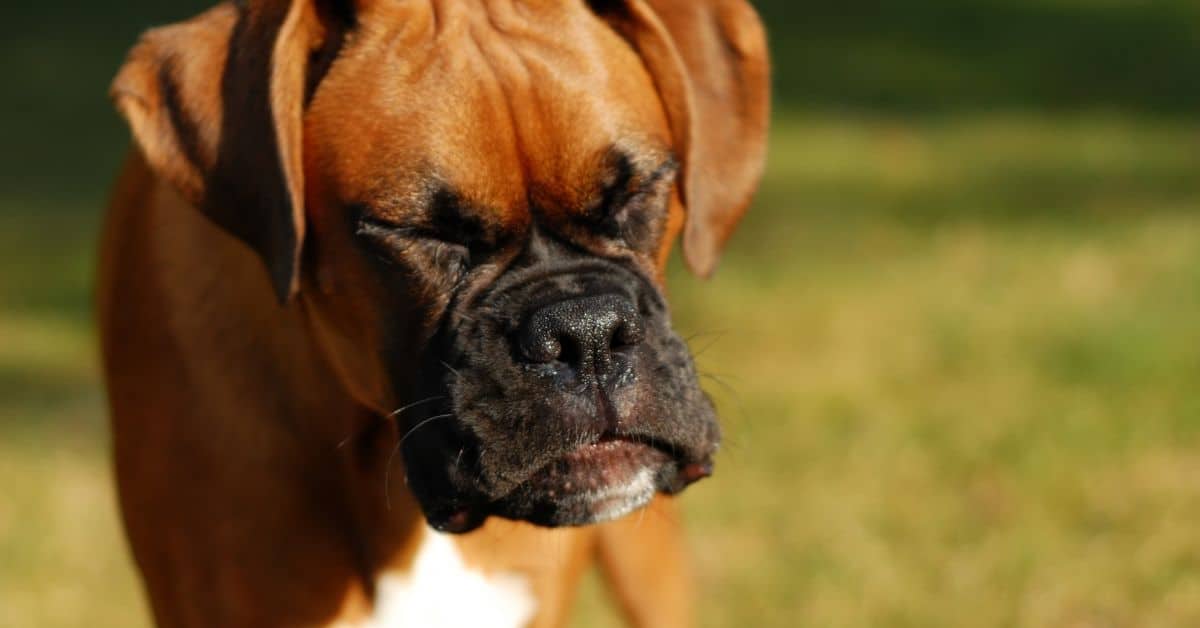If you are a dog owner, chances are you have noticed that your canine companion sneezes quite a bit.
You may be wondering why this is happening and what it could mean for your pet’s health.
Sneezing in dogs can signal anything from allergies to more serious medical conditions.
So it’s important to understand the underlying cause before taking further steps.
In this article, we’ll look at common causes of frequent sneezing in dogs and how best to address them depending on their severity.
So keep reading if you want to get the question “why is a dog sneezing a lot” fully answered.
What Does Sneezing In A Dog Indicate?
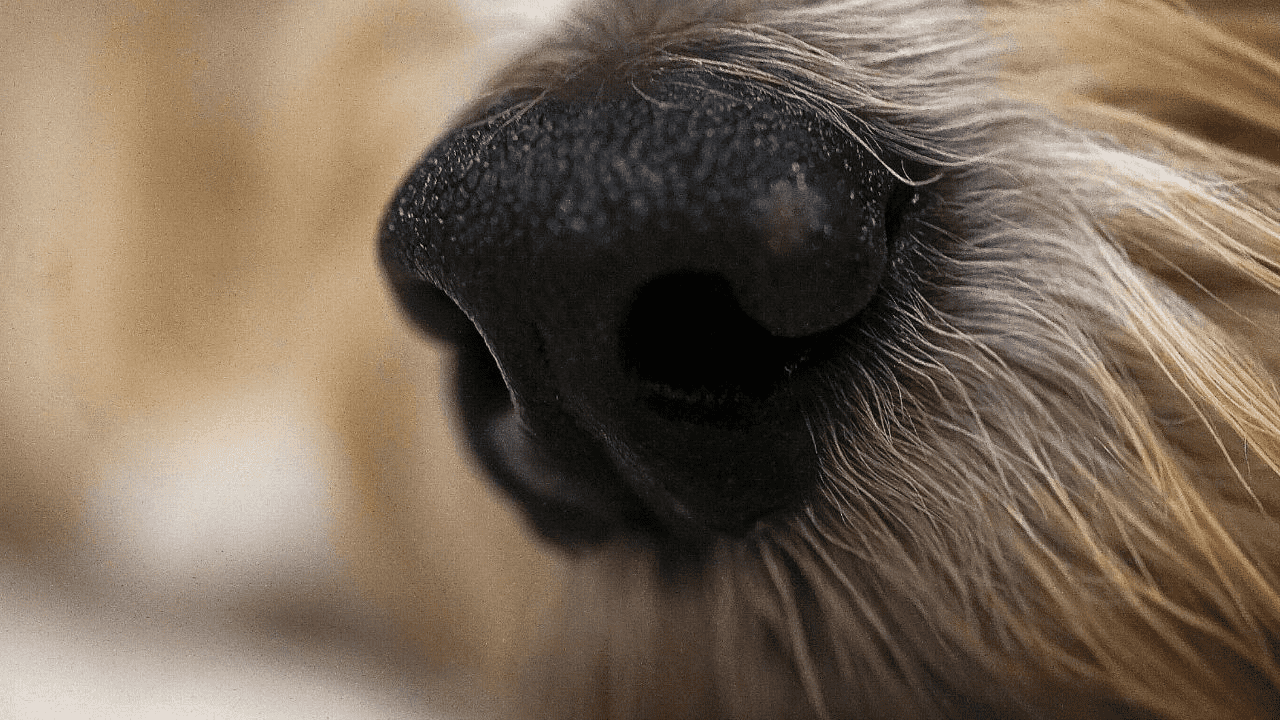
When dogs sneeze, it can be from various causes, from viral infections to allergies.
Dog sneezing is a common symptom in dogs and can be caused by many different reasons.
Here are the most common ones.
Allergies
Allergies are one of the most common reasons for dog sneezing.
They can be caused by irritants like smoke, dust, pollen in the dog’s environment, or even pet dander on their fur and skin.
A dog can also have food-related allergies that cause sneezing due to certain ingredients they ingest.
Studies show that dog allergies are usually treated with allergen injections, desensitization therapy, and dietary modification.
Suppose your dog appears to be having allergic episodes more often than usual.
In that case, a visit to the vet is recommended so they can assess what allergens may be affecting your dog and suggest possible treatment plans.
Normal Dog Communication
Dog sneezing is often a sign of normal dog communication, like any other mammal.
When dogs sneeze, it can be out of excitement or simple acknowledgment, similar to us saying “hello” or “goodbye.”
Dogs have also been known to sneeze if they are nervous or anxious.
It’s also thought that dog-to-dog communication occurs through sneezing too.
Sneezes can even be an indicator of happiness and contentment.
Many dog owners have reported their pet dogs often sneeze in joy when meeting their owner after a long absence.
In conclusion, dog sneezing is an important means of dog communication.
Want To Play
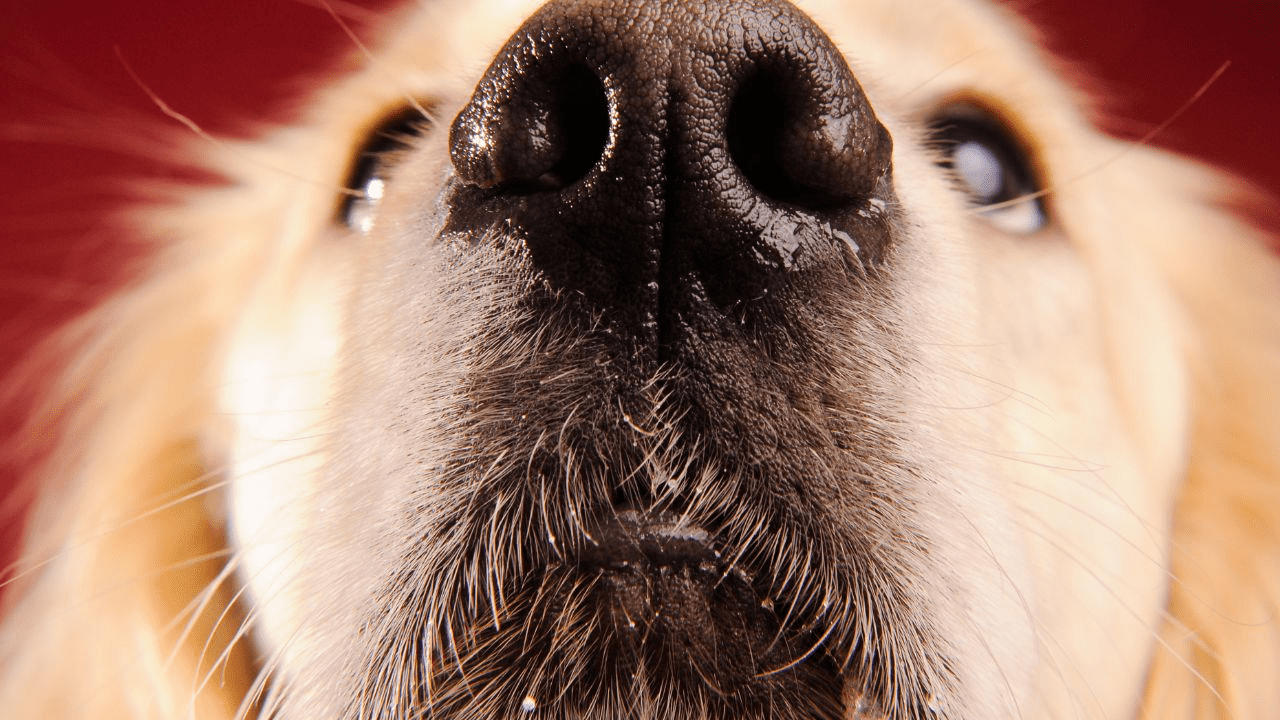
Many times when a dog is feeling playful or excited, it will start to sneeze as an involuntary reaction to its own emotions.
This type of dog sneezing usually isn’t serious. It doesn’t require medical attention unless it becomes excessive or frequently occurs throughout the day.
If your pup is just having fun, then there shouldn’t be any need for concern!
Dental Problems
Dental problems are another potential cause for a dog sneezes.
If your pup has tartar buildup on their teeth or gums, it could lead to irritation in their nose.
This will cause them to start sniffling and snorting often.
Ensure you’re brushing your pet’s teeth regularly and taking them in for checkups at least once yearly.
That way, any dental issues can be caught and treated early.
Reverse Sneezing
Reverse sneezing is a condition in which your dog will take in a large amount of air through their nose.
Causing them to make a snorting or honking sound as they expel the air.
Reverse sneezing can be quite alarming.
Still, it usually isn’t serious and shouldn’t require medical attention unless it occurs frequently or becomes excessive.
Inhalation Of A Foreign Object
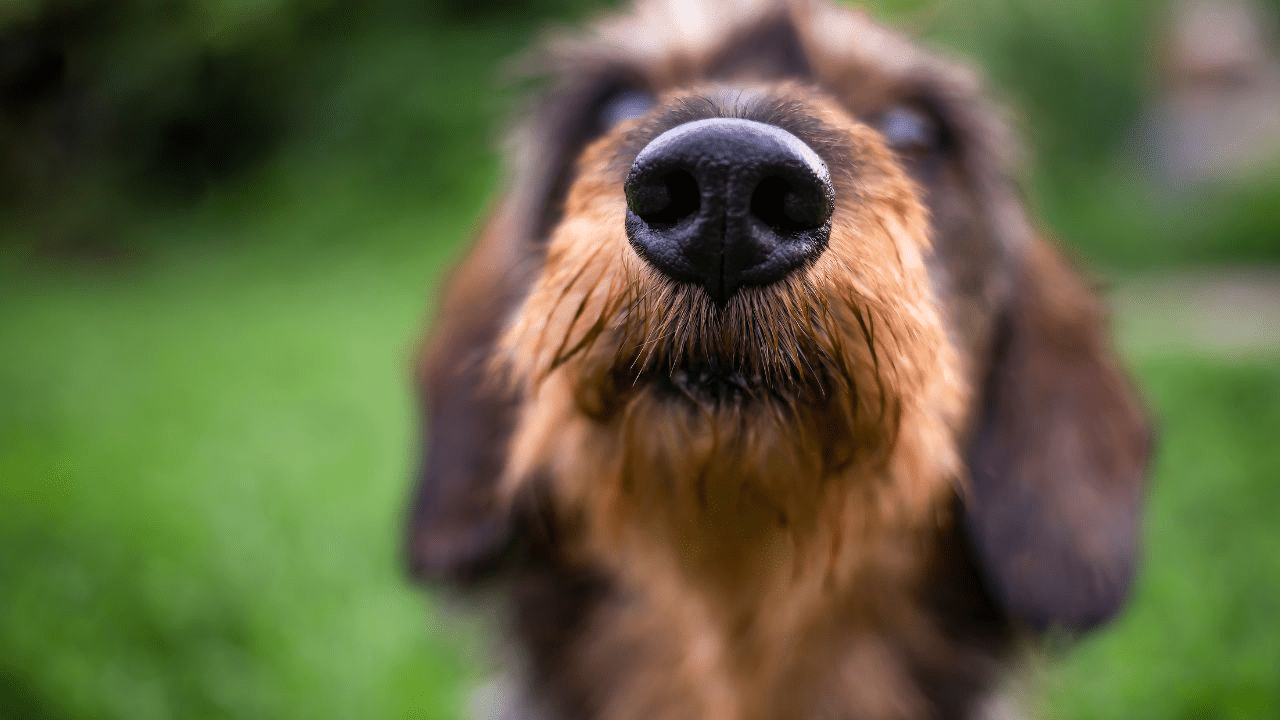
If your pup has been sniffling around where small objects such as toys or food could have been left behind, they may have inhaled one of these items into their nasal passages.
That can be quite serious, as the foreign object could cause an obstruction or infection.
This would be need to be treated by a veterinarian right away.
Airborne Irritants
Airborne irritants such as pollen, dust, and smoke can also lead to sneezing in dogs.
If your pup is exposed to these types of particles, then it’s likely that their nose will become irritated, and they’ll start to sneeze more than normal.
Make sure you keep your home clean and free from pollutants so that your four-legged friend is breathing easy!
Nasal Infection
Nasal infections are another common cause of dog sneezing.
If your pet has been exposed to bacteria or parasites, then it’s likely that they may develop a sinus infection.
It can lead to excessive sneezing and other symptoms such as coughing, nasal discharge, and fever.
See your veterinarian immediately if your pup is suffering from a nasal infection.
Nasal Mites
Nasal mites are tiny parasites that can inhabit the nose of a dog.
These nasal mites feed on mucus within the nasal passages and will cause irritation which leads to frequent sneezing.
If you suspect your pet is suffering from nasal mites, take them in for treatment as soon as possible!
Common Cold
Just like humans, dogs can catch a common cold which will lead to sneezing, coughing, and other respiratory symptoms.
Make sure you keep your pup away from other animals who may be ill and offer them plenty of rest and fluids while they are sick.
Nasal Tumors
In some cases, a dog’s sneezing could be an indication that they have nasal tumors or growth.
These types of nasal tumors don’t usually cause too many symptoms, but if there is excessive sneezing, then it’s important to take your pet in for testing.
Kennel Cough
Kennel cough is another possible cause for a sneezing dog.
That is a highly contagious condition spread through contact with other dogs or contaminated surfaces.
If your pup has been exposed to sick animals lately, then take them in for a checkup and ensure they are up to date on their vaccinations.
Overall, if your pup is sneezing more than normal, it’s best to get them checked out by a veterinarian as soon as possible.
Although many potential causes of canine sneezing exist, only a professional can determine the exact cause and provide the proper treatment.
Dog Breeds That Are Prone To Sneezing
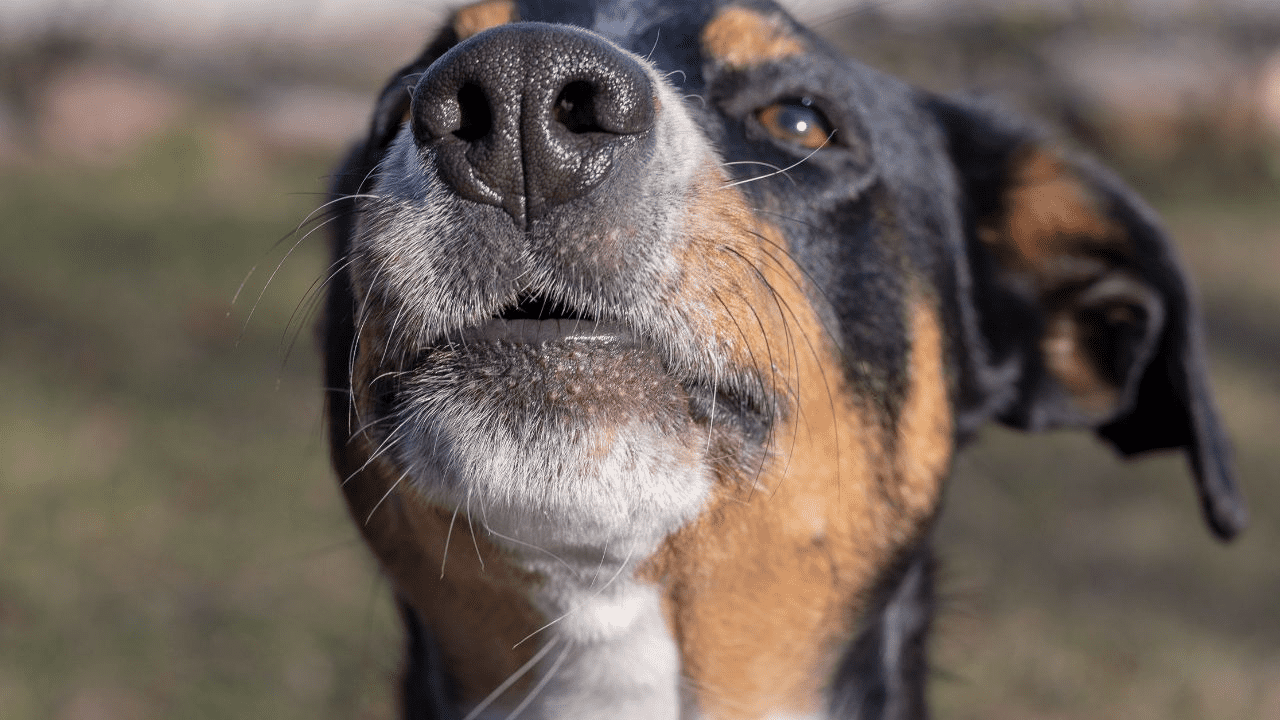
Many dog breeds are prone to sneezing, which is often a sign of allergies or an underlying health condition.
Some dogs may even have a genetic predisposition that causes them to sneeze more frequently than others.
Snub-nosed breeds such as the Pug, Pekingese, Shih Tzu, Boston Terrier, and Bulldog are particularly susceptible to this problem since they have shorter noses which can cause airway obstruction and increased respiratory issues.
What If The Dog Vs. Sneezing Blood
If your dog is sneezing blood, it is important to take them to the vet as soon as possible.
Blood in dog’s nose can signify a serious health problem such as sinusitis or fungal or bacterial infection.
It can also indicate allergic reactions or irritation due to environmental factors such as smoke or dust, trauma, or certain tumors.
The only way to accurately diagnose the cause and begin treatment is by visiting a vet.
Difference Between Dog Sneezing Vs. Snorting
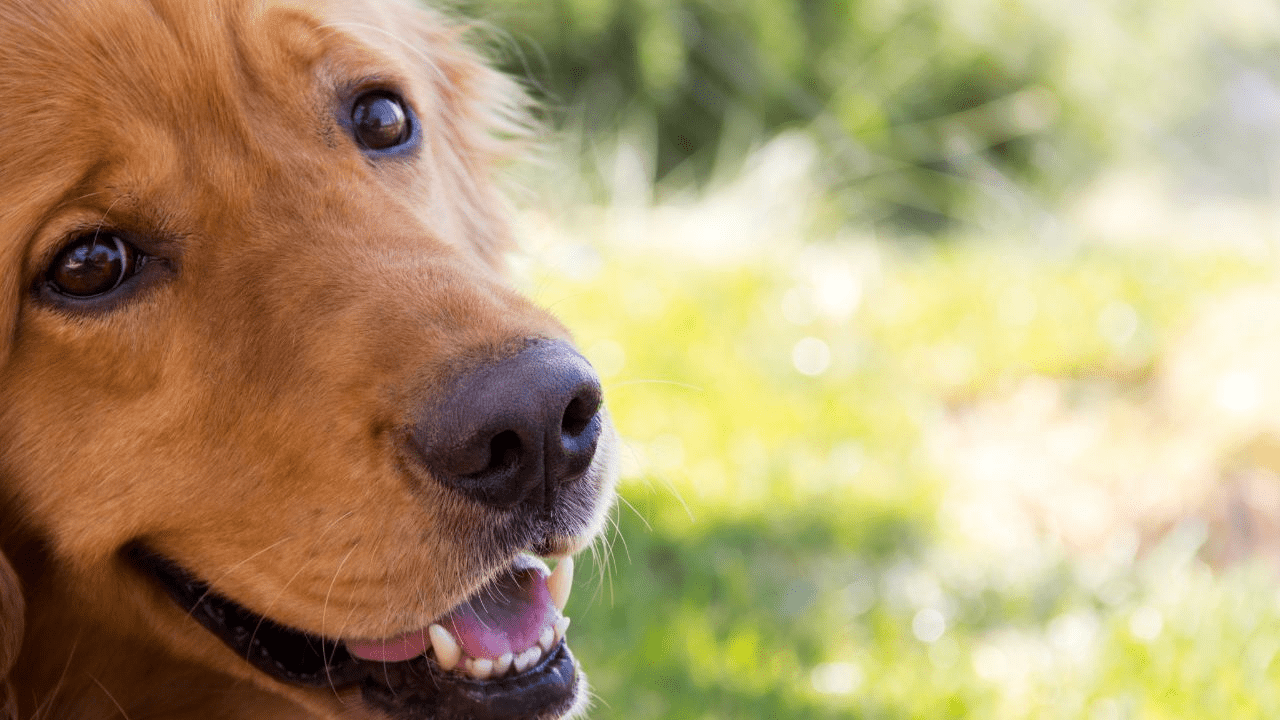
Dog sneezing and snorting are two behaviors that can indicate a variety of things in canines.
Though they may seem similar, there are several differences between the two.
Sneezing is a reflexive action caused by irritants such as dust or smoke in the dog’s nose or irritation from the nasal system.
A canine will usually expel air through its nose when they sneeze, and it will be accompanied by a sound.
Sneezing could also indicate an infection or illness that needs to be addressed.
On the other hand, snorting is also caused by an irritant, but it involves a deeper inhalation than sneezing.
Snorting can occur when dogs have something lodged in their nostrils, such as dirt particles or pollen.
That causes them to take a deep breath to try and push the foreign object out of their noses.
It sounds like a quick inhalation with little to no sound made afterward.
Dogs may also snort for fun when excited about something, such as seeing a new toy or meeting someone new.
Though both behaviors may seem alarming at first, they do not usually indicate serious health issues unless your pup sneezes consistently over a long period or if any discharge is coming from their nose along with it.
If this happens, you should take your furry friend to the vet immediately so they can get checked out and treated if necessary.
Can I Treat My Dog’s Sneezing At Home?
No, it’s not recommended to treat your dog’s sneezing at home.
If your dog is having frequent sneezing episodes, then it’s best to take them to the vet for an evaluation.
The vet may suggest certain treatments or medications depending on what is causing the issue.
Also, if there is any discharge coming out of their nose along with the sneezing, then they should see a vet as soon as possible.
What Can I Give My Dog For Sneezing?
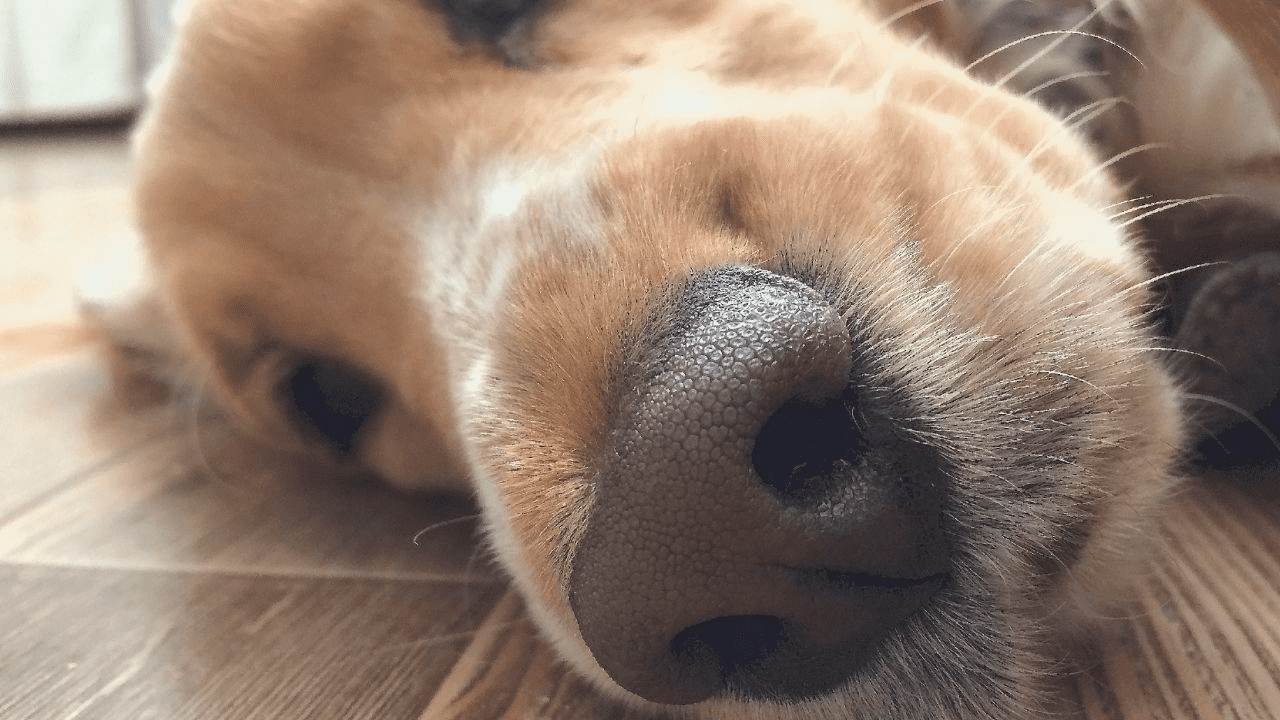
If your dog is sneezing, it’s important to first try and identify the underlying cause.
Generally speaking, if your dog is having an allergic reaction or dealing with a minor respiratory issue, you can give them some antihistamine or mild steroids such as Benadryl or Prednisone to help reduce the symptoms.
If there is an infection causing sneezing, antibiotics may be prescribed by a veterinarian to help treat it.
Additionally, some dogs will benefit from humidifiers in dry environments and saline nasal drops to relieve their symptoms.
In any case, consult your vet before giving your dog any kind of medication or supplement for sneezing-related issues.
When To Take Sneezing Dogs To The Vet
It is important to take your dog to the vet if they are sneezing excessively.
Particularly if their appetite or energy level changes or other symptoms.
That could be discharged from their nose and eyes arise.
Suppose you notice that your dog’s sneezing is accompanied by coughing, a fever, yellowish-green discharge from their nose, and/or blood in the mucus.
In that case, you should immediately take them to the vet for assessment.
In addition, if your dog has been exposed to environmental pollutants or allergens like pollen (grasses, trees), tobacco smoke, and molds, it is important to seek medical attention immediately.
Finally, if the symptoms of sneezing persist for more than 24 hours without any improvement, then it would be wise to consult a veterinarian.
Before You Go…
Now you know why dogs sneeze a lot.
If you want to learn more, read the following articles too!
Or watch this video:

